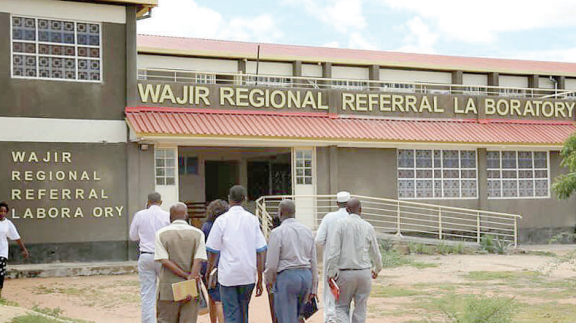From one to 56 doctors: The story of devolution in Wajir

Before 2013, Wajir easily fitted the description of a sleepy and desolate economic backwater. But a decade of devolution has totally transformed the border county.
Sitting on an area of more than 55,000 square kilometres, Wajir County is home to more than 700,000 people, a majority being of the Somali ethnic background. Categorised as an arid and semi-arid area, Wajir had for long been known for perennial clan conflicts, devastating droughts, deadly famines and disease outbreaks. Governor Ahmed Abdullahi readily acknowledges that devolution has worked, and continues to work, not just in Wajir County, but in every part of the country.
“Overall, I will say devolution has worked for everybody not only for Wajir. It has worked everywhere, but for counties which were referred to as marginalised, the benefits are more noticeable,” he says. Abdullahi says devolution had succeeded in its objective of taking services closer to the people and devolving resources and decision-making powers to the grassroots.
“We needed to have a government providing those very critical services to the people; an administration that could easily intervene faster in any situation,” he says. “We had about 82 boreholes drilled and on paper 300 healthcare workers and we never had tarmac roads. Most parts were inaccessible then,” he recalls.
Emergencies
But the advent of county governments, he says, had changed Wajir for the better and now residents can more easily access critical government services and benefit from the country’s resources. On health, Wajir has covered wide strides, according to the Governor, including hiring more medical staff and constructing better healthcare facilities.
“We had one medical doctor covering the entire county, then Wajir District. It was difficult then to respond to medical emergencies in far-flung areas of this county but that has since changed and we now have 56 doctors with 18 of them being consultants,” he says.
“With devolution, medical staff at Wajir County Referral Hospital recently carried out a successful hip replacement surgery and a laparoscopic surgery which were never available in the past before devolution,” he says.
Dahir Somo, CEO of Wajir County Referral Hospital, says more specialised services had been introduced at the facility that was built in 1944 by Italians.
“Since devolution, we have a lot that has improved including reduced waiting time for outpatients being 15 minutes. The average stay in our wards is about three days unlike before,” Somo says.
Surgeries
The facility now offers radiology and CT scans, all of which became available during the era of devolution.
“We offer dialysis service unlike before when we had to refer patients to Garissa or to Nairobi for this service,” he says.
The number of medical specialists had also increased manyfold, according to Somo. Construction of an Accident and Emergency unit is underway and is expected to be completed by July next year. “We are carrying out surgery in all departments every day and patients with NHIF medical cover are enjoying services here in Wajir,” he says.
Hussein Mohamed Awale, a resident of the county, says health services had improved significantly across the county in the past decade.
“We have qualified medical staff in Wajir and locals are enjoying health services without any hindrances,” he said. To respond to medical emergencies, the county has acquired 22 well-equipped ambulances stationed at all sub-counties, according to Governor Abdullahi.
“Our ambulance services are free while other counties are charging. We have not made a decision to charge our people because we are serving a poor society,” he explains.
Sixth hospital The county has a toll-free number for residents to call so that they can be referred to the main hospital in Wajir town.
“The public can call the toll number 0721286262. This is part of our wider efforts to improve our healthcare services to the common mwananchi,” he says.
The county government has managed to operationalise at least five other hospitals at the sub-county level by hiring more medical staff and providing equipment and other facilities.
“We are now focusing on the sixth hospital so that our people can easily get medical services at their doorstep,” he said.
The Governor says health facilities had increased, thus reducing the distance patients cover while seeking healthcare services.







